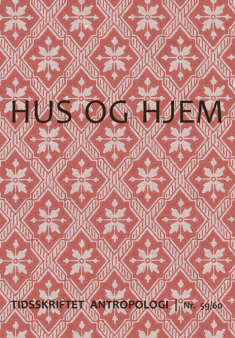HJEM UDEN BØRN
DOI:
https://doi.org/10.7146/ta.v0i59/60.106838Abstract
This article explores how childless men and women in Denmark connect their
longings for children and their purchase of a house with notions of home and
kinship. It investigates thereby how their stories about hopes and longings for
children stage and confi gure relationships between materiality and sociality. I draw
primarily upon an ethnographic study of interfi le men and women in Denmark in
the late nineties and their encounter with procreative technologies. The fi eldwork
was centred on three local groups of the National Association for Involuntary
Childless. Taking part in their meetings and social gatherings over a period of
two years gave me an opportunity to obtain insights in how infertility affected
and challenged their lives and plans, and it opened a window to a multi-faceted
understanding of kinship in Denmark. This article thus focuses on the material
dimensions of kinship and relatedness from a childless perspective. The childless
people are in a particular empirical position because what they think and
say about children and family life exists primarily as hopes, longings and future
projections. The aspirations for children nevertheless contain things and materiality
and they epitomize how physicality, locality, dwelling, things and consumer
goods are part and parcel of kinship thinking.
Keywords: Kinship, involuntary childlessness, things, house/home.
Downloads
Published
How to Cite
Issue
Section
License
Ophavsretten til artiklerne i Tidsskriftet Antropologi tilfalder forfatteren.
Artikler publiceret i Tidsskriftet Antropologi må citeres, downloades og videresendes for ikke-kommerciel brug, under forudsætning af normal akademisk reference til forfatter(e) samt tidsskrift, årgang, nummer og sider. Artiklerne må kun genudgives med eksplicit tilladelse fra forfatter(e) og tidsskriftet.


